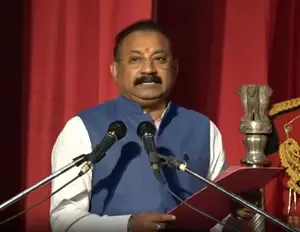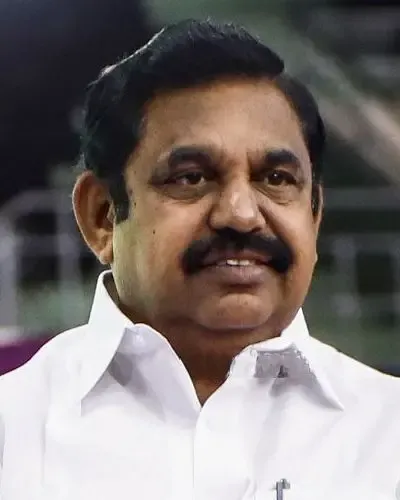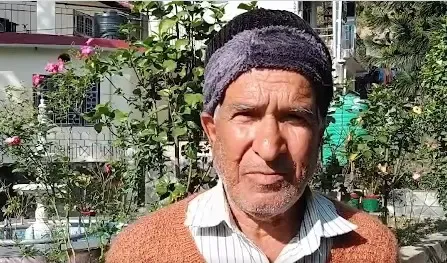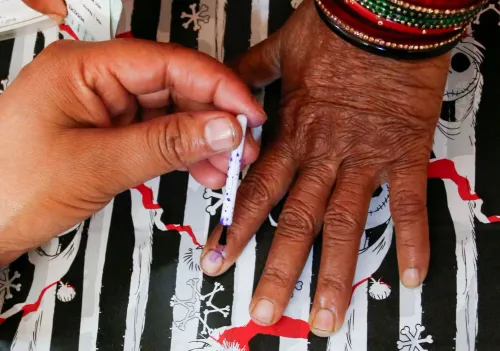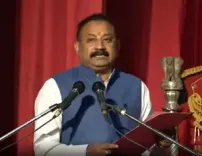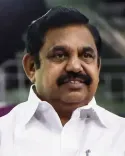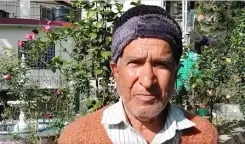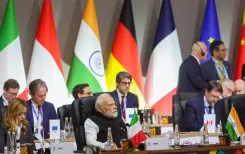How does Illumination Enhance Independence Day Celebrations at Delhi Assembly?
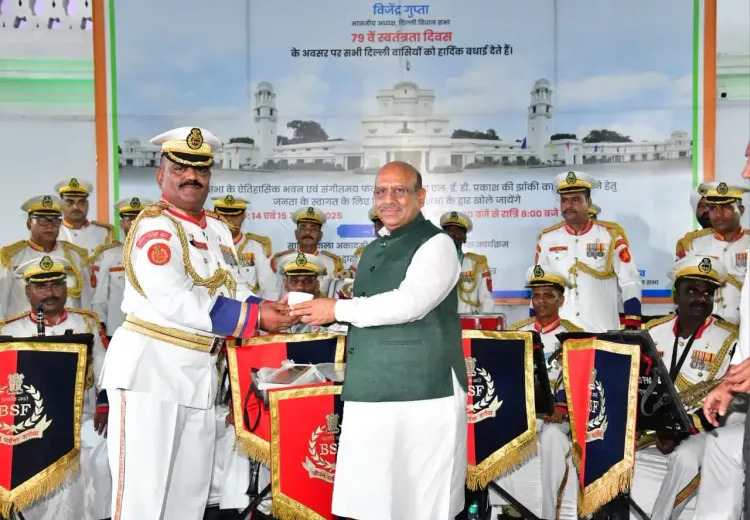
Synopsis
Key Takeaways
- The Delhi Assembly was illuminated in the Tricolour for Independence Day.
- Speaker Vijender Gupta reflected on India's journey to democracy.
- The event featured performances by the BSF Band and cultural presentations.
- Tributes were paid to freedom fighters and the Indian Armed Forces.
- The vision of Aatmanirbhar Bharat was highlighted.
New Delhi, Aug 15 (NationPress) The historic Delhi Assembly was beautifully illuminated in the Tricolour on Independence Day, as Speaker Vijender Gupta commemorated the powerful call for freedom made from this very site by iconic leaders such as Mahatma Gandhi, Vitthalbhai Patel, Lala Lajpat Rai, and Gopal Krishna Gokhale.
During the celebration of the 79th Independence Day at the Delhi Legislative Assembly, Speaker Gupta remarked, “This day is a significant reminder of India’s evolution — from the chains of colonialism to establishing itself as the world’s largest democracy.”
Earlier that morning, he raised the National Flag at his residence.
On this day, the citizens of Delhi filled the 115-year-old Assembly building, creating an atmosphere rich with patriotic spirit and enthusiasm.
Families and visitors explored the Assembly grounds, gaining insights into its esteemed heritage while admiring the stunning architecture.
The electrifying performances by the Border Security Force (BSF) Band captivated the audience, who responded with applause and cheers to the patriotic melodies. The lively cultural displays by the Sahitya Kala Parishad added even more vibrancy and joy, eliciting smiles and appreciation from everyone present.
The Assembly, glowing in the tricolour for the occasion, served as a magnificent backdrop for the celebrations, filling the surroundings with a sense of national pride.
The Speaker honored the freedom fighters and praised the bravery of the Indian Armed Forces, highlighting “Operation Sindoor” and “Operation Mahadev” as epitomes of courage and commitment.
Gupta mentioned that under Prime Minister Narendra Modi's steadfast leadership, national unity has been fortified, India's global stature has expanded, and citizens have been motivated by the vision of an Aatmanirbhar Bharat — promoting self-sufficiency, innovation, and inclusive development.
Reflecting on the historical importance of the Delhi Legislative Assembly, Gupta noted that it was the first Parliament of India, having been visited three times by Mahatma Gandhi.
He recounted protests against the Simon Commission and recalled the moment when Vitthalbhai Patel became the first elected Speaker of the Assembly a century ago.
He emphasized that within these walls, great leaders like Lala Lajpat Rai, Pandit Madan Mohan Malaviya, and Gopal Krishna Gokhale bravely opposed British policies.
Gupta underscored that the opposition to the Rowlatt Act sparked the Non-Cooperation Movement, revealing the repressive nature of British rule.
He asserted that allowing citizens into the Assembly during such events enables them to follow in the footsteps of the visionary leaders who defined our freedom struggle and to pay heartfelt tributes to those who made the ultimate sacrifice for India's independence.

